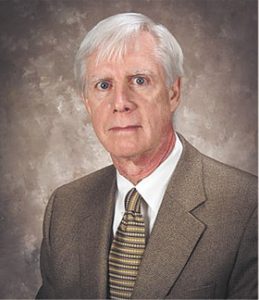
There has been a lot written in recent years about “caregivers”. A whitepaper report by Hartford Funds gave me information on this topic that I want to share with you. Perhaps a short description of what caregiving is would be helpful: informal, unpaid help provided by a friend or family member to include a wide range of tasks that assist an older adult in his or her daily life. It is important to note that the “caregiver career” usually starts with small tasks, like calling and checking on your friend or loved one, evolving into providing transportation to doctor appointments, helping with home maintenance, shopping for food, etc. The next steps could be cooking, cleaning, bathing, dressing and medicinal administration. As new tasks are added and the existing activities still remain, the demand on the caregiver’s time, effort, energy and capacity naturally increase also. The new tasks will add physical and emotional demands on the caregiver. These duties will fall more and more on the “sandwich” generation defined as younger baby boomers in their 50’s and Gen-X-ers in their late 40’s, because they are “caught in the middle” of both caring for their children and aging parents. Most are employed, so they now will have two “jobs”, one with a salary and one without.
We like to think that our caregiving is a function of love and loyalty to friends and family, and it is. However, as noted above, there is a physical and emotional cost as well as a true financial cost associated with the care we give. According to the AARP, the average time dedicated to caregiving for someone age 50 or older is 24 hours per week, and you will spend an average of $5,500 annually to help. There is some good news. There are agencies and websites that provide assistance. In our area, we have the Council on Aging that may offer help. Meals on Wheels may be available. There are Alzheimer’s Association Chapters and several companies offer sitters and home health aides. Some of the websites include AARP Home and Family Caregiving, Alzheimers.gov, Eldercare locator, Family Caregiver Alliance and National Alliance for Caregiving, to name a few. Maybe your church family will have some ideas, also. Your life is going to change if, in fact, you become a caregiver. You will need as much help as you give, so reach out. You cannot do this on your own—not without detrimental strains on your family, your health and your finances.
I had a good friend drop dead a few weeks ago. My grandson, age 16, lost a close friend in a drowning accident. Our responses were dramatically different. I was saddened by my loss and sent a note to the widow, attended the funeral, reminisced with friends, and came home. My grandson and some of his companions did not take their loss so calmly, becoming angry at everyone and rebelling for a short while at anyone trying to offer them guidance and condolences. Is life so much more precious when you are young; have we old folks become so accustomed to our friends leaving us that it is almost expected and accepted with nary a nod? I hope not, but suspect that I do turn loose more easily than in earlier years. I know and believe that death is not the end, but the beginning of a new life, but shouldn’t I be more compassionate for the loved ones remaining? Maybe I should ask for help myself: Lord, I pray that you will open my heart and mind to feel and understand the pain my companions are experiencing with the loss of their loved one. Let me hear you speak, let me feel your touch, let me yield to your push so that I can respond and provide a more loving response to those left alone. I ask you to forgive me for my neglect and thank you for reminding me to care, to love. Amen.
Although this information has been gathered from sources believed to be reliable, it cannot be guaranteed. This material is intended for informational purposes only and should not be construed or acted upon as individualized tax, legal or investment advice. FSC Securities Corporation does not offer tax or legal advice. The views expressed are not necessarily the opinion of FSC Securities Corporation. Financial Solutions Group is a marketing name. Financial Solutions Group is located at 128 Versailles Blvd, Alexandria, LA 71301. We can be reached at (318) 448-3201. Securities, insurance and advisory services offered through FSC Securities Corporation, member FINRA/SIPC.










